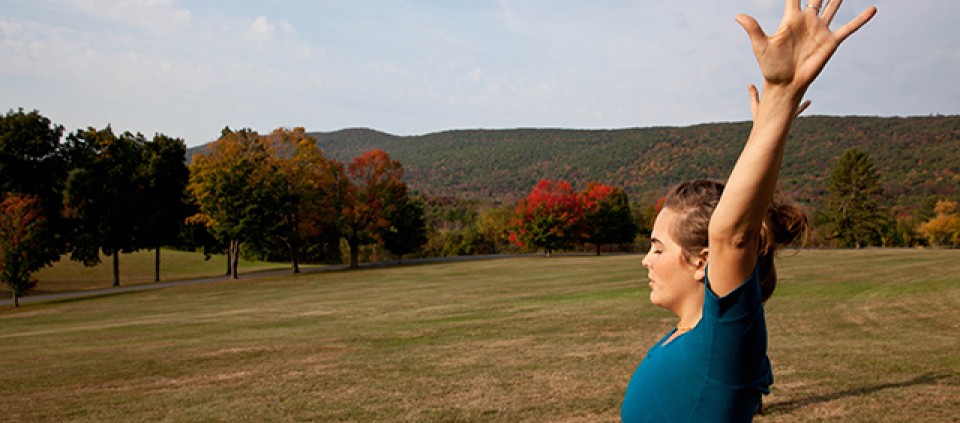Slow Down: Restoring Pathways to Connection

There is more to life than increasing its speed.
—Mohandas K. Gandhi
Go-go-go. More-more-more. Faster-harder-better. We live in a culture of speed and disconnect—disconnect from self, others, and the world around us, which gradually takes us away from the natural rhythms and cycles of our body, nature, and life. Conditions such as anxiety and depression, digestive disorders, and addiction often stem from a lifestyle of disconnection.
What would it feel like to restore our pathways of connection, to direct just as much energy toward slowing down as we do toward striving?
Our body, movements, experiences, and environment are intricately linked. Consciously slowing down and paying attention invite us to strengthen connection at every level—mental, emotional, physical, and spiritual.
Mindfulness practices such as yoga and meditation continue to reveal the powerful effects that connection and embodiment have on the brain, the immune system, and overall well-being. The process of slowing down begins to shift the internal chemistry, stimulating the body’s parasympathetic nervous system, our relaxation response. As we slow down and draw forth conscious relaxation, we deactivate the stress response and increase our ability to become aware and feel our body in the present moment. Present moment awareness invites us to pay attention to our current experience, which naturally awakens intuition and allows us to fully experience the world around us. By cultivating a deeper relationship to self, we awaken to all that life has to offer.
Embodied Self-Awareness on the Yoga Mat
The eight-limbed path of yoga invites a yoking between the mind and body and our inner and outer worlds. Our time on the yoga mat and our life often mirror one another. How we practice on the mat can reflect the way we show up in our daily life. When we pay attention and savor each movement, each pose, each breath, our yoga practice becomes more than something we do, it also helps cultivate deeper levels of presence and self-awareness.
As psychologist and yoga therapist Bo Forbes notes, “Awareness and breath are the foundations of a transformative practice. Slowness and embodiment of direct experience in yoga help create positive neuroplasticity”—the brain’s ability to change neural pathways, patterns, cognitive processes, and emotional states. When we shift our habits of excessive activity and take more time to pause, notice, and feel, the pause becomes the space where deeper wisdom can flow through us.
Here are some ways to slow down on your yoga mat and in your life.
- Take a Yin or a restorative yoga class.
- Carve out mini “breathing breaks” throughout your day. Focus on long inhales and full exhales.
- Meditate for 10 minutes in the morning.
- Eat a meal in silence.
- Do Legs up the Wall pose (lying on your back with the legs resting upright against a wall) for five minutes at the end of the day.
- Take a warm bath.
- Journal about five things you are grateful for every night before bed.
© Kripalu Center for Yoga & Health. All rights reserved. To request permission to reprint, please e-mail editor@kripalu.org.
Jess Frey (she/her), E-RYT 1000, is a Kripalu Yoga educator, life coach, and artist known for her authenticity, motivation, and depth.
Full Bio and Programs